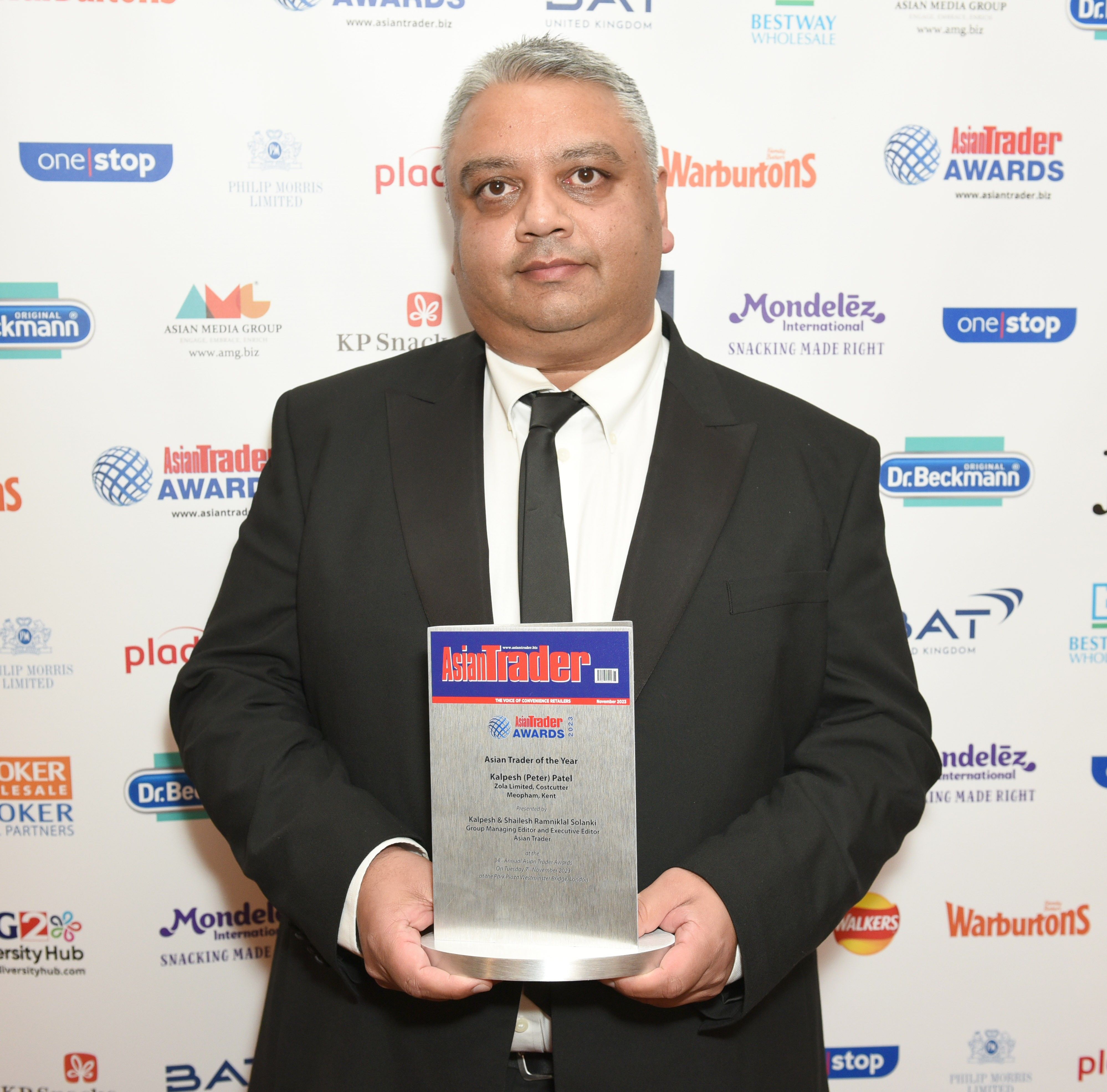Pete Patel, a seasoned convenience retailer and entrepreneur, is the force behind 10 thriving stores under the Costcutter and Bargain Booze symbol groups. Crowned Asian Trader of the Year at the 2023 Asian Trader Awards, this accolade is the latest in a series of prestigious wins, including the Convenience Chain of the Year Award in 2021, the Shop Safety Best Practice Award in 2020, and the Bakery Retailer Award in 2019.
Pete’s recent growth trajectory has been nothing short of phenomenal. From managing six sites in 2023, he expanded to ten by the end of the year, acquiring four McColl’s stores, three in Essex and one in Kent, when Morrisons was forced to divest certain stores to allay competition concerns.
Not content with mere acquisition, Pete has swiftly transformed underperforming locations into bustling hubs of activity. His Warley store underwent a complete refurbishment within weeks, while the Purfleet one was extended to create a larger, more customer-friendly space, all without disrupting operations.
“We bought the store in Warley in Brentwood in July last year, and we did the refurbishment work in November. We completely refurbished it, stripped it all out, put the new in and we've turned it around in one week,” he says.
“The Purfleet store, again, was a complete refurbishment, but we also bought the unit next door, so we knocked it all the way through and did some building work. The store is on a council estate and while all the work was going on, we didn't shut at all, because it's the only shop in the estate.”

He has plans to develop the other two stores next year.
Dual-branding has become a hallmark of Pete’s portfolio, since his Meopham store, in Gravesham, Kent, became the first Costcutter-Bargain Booze hybrid in the country. He has changed his stores in Brockley, in Lewisham, London, and Purfleet to dual-branding, and was finishing the work at the Heanor store in Derbyshire, his first, as we spoke in late November. One more store, in Southborough, Tunbridge Wells, is also set to adorn the dual-branded fascia in January.
He believes that the innovative concept is here to stay.
“The ones that we can, we are going to convert to dual-branding,” he says, highlighting its competitive edge. “You need to have enough space to do it or to offer the range of alcohol. If you have enough space, then it’s definitely worth doing, because it provides a point of difference from the competition.”
Tailored offerings
What sets Pete apart is his commitment to tailoring product ranges to local customer needs.
“We are strong believers in making sure you sell what your customers want,” he says. “All of my stores are different. Purfleet is all about confectionery, crisps and soft drinks. So, we have made sure we have got big ranges, big displays in there. Brockley is all about healthy food, organic and vegan. We have gone big in that area there,” he explains.
In fact, Brockley has become the destination for vegan foods in the area after a previous refit in 2018. The icing on the cake was when local Sainsbury’s store decided to reduce their vegan offering, directing shoppers to Pete instead!

He supplements core Costcutter and Bargain Booze offerings with products from local suppliers, ensuring a diverse and appealing inventory. Earlier this year, he installed the new iSqueeze juice machines in some of the stores.
“We only put it in stores where we feel it matches the criteria for the local customers. Obviously, they are very good in the summer, but even in winter, because when the people suffer from cold and stuff, they do like to buy fresh orange, as the vitamin C content is going to be higher,” he says.
In Purfleet, they added the pick and mix section in confectionery, and for every cup they sell, they donate two per cent to the local food bank.
Community and sustainability
Pete’s commitment to the community extends beyond the shop floor. His stores frequently donate proceeds from sales to local food banks, integrating philanthropy into daily operations. The EcoVend reverse vending machine in Brockley is a standout initiative, encouraging recycling by donating a penny per item recycled to charity.
“Now, the machine has cost me. It's about a £12,000 investment. We don't make any money from the machine. In fact, we lose money because we give it away, a penny, but we are encouraging people to recycle,” he says.
Pete is an exemplary best practice retailer when it comes to sustainability initiatives, removing most of the pre-packed fruit and vegetables, introducing free-from packaging ranges and refillable categories.
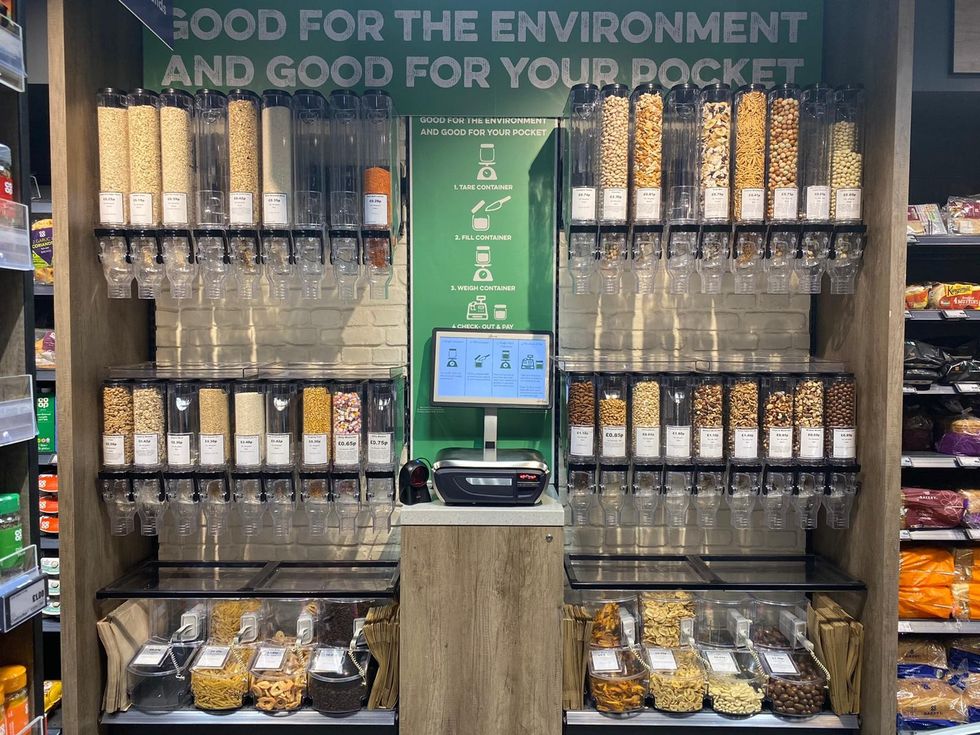
Launched at the Southborough store, they introduced a refill centre into the Brockley store last September and Pete says it has been received well there, as people in the area tend to be environmentally-conscious shoppers. However, he acknowledges that such initiatives require space and may not yet suit all demographics, but he remains optimistic about their future viability.
“It's very difficult (to replicate the concept), because you need to have the space in the stores. In Brockley, I'm lucky because it's a 3000 sq.ft. unit, but it takes up a minimum two to three meters of space,” he explains. “And I think at the moment, the public are not ready for it in all of the areas, so maybe in 2-3 years’ time, we'll see more of it come out.”
The pick and mix, meanwhile, is something they will look at taking to other stores, he adds, as “that's saving on packaging.”
Tackling crime
Retail crime has become a significant challenge for convenience retailers, and Pete’s stores are no exception. Over the past three to five months, he has observed a notable rise in shoplifting across all his stores. “Previously, it was only one or two stores that had a real bad issue with it. Now we’re finding all of the stores have got the same issue,” he notes.
To combat this, he has invested heavily in technology such as the intelligent video surveillance from Veesion, which uses AI technology to monitor CCTV and highlights anyone who is a risk to the business, and the Safe Watch system that allows staff to discreetly request assistance if they feel threatened.
He has also implemented a range of innovative measures. One such strategy involves the use of saver boxes for high-value items like steaks. These plastic containers require a magnetic release at the checkout, making it harder for shoplifters to steal multiple items at once.
“If someone wants to take the steak, they can still break the box anyway. But what we are trying to do is restrict the amount they can take in one go by putting them in slightly bigger boxes,” he explains. “What we were finding was they were coming in and taking six or seven packs because it’s easy to put them in their coat or bag, but the bigger boxes make it bulky for them to take.”
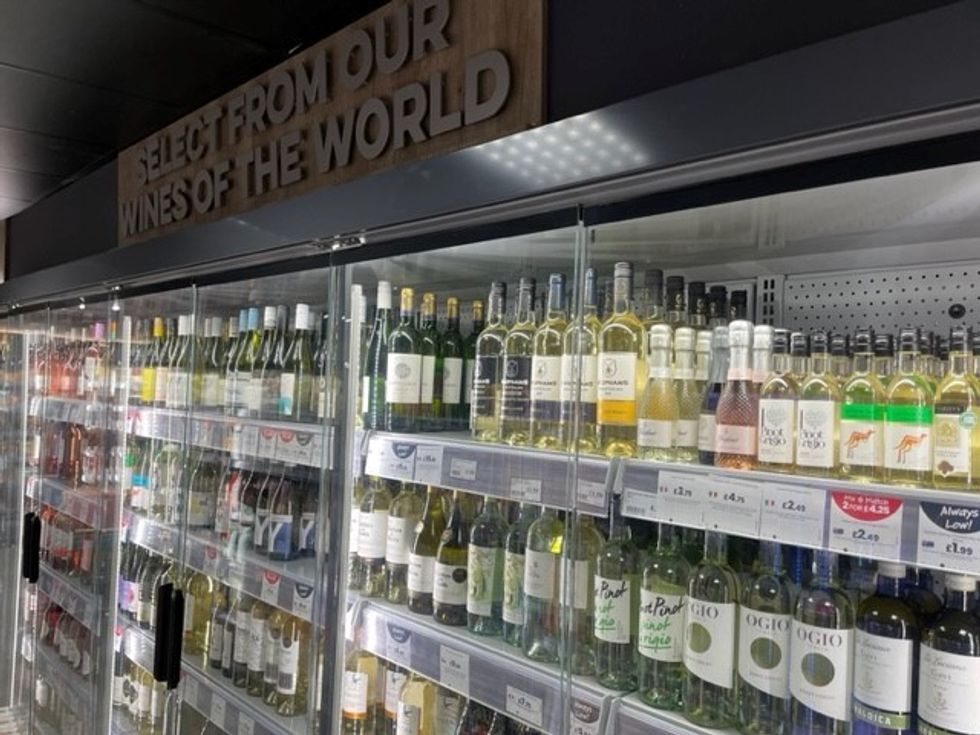
Additionally, Pete has begun limiting the number of high-value products displayed on shelves. “Instead of building the shelf up with the high value items, we have to restrict how many we put on and just make sure that the staff are keep replenishing it,” he says.
He estimates that around 60-70 per cent of shoplifting incidents are tied to organised crime, while the remainder involves opportunistic individuals, including schoolchildren. “You have schoolchildren doing it as well. They’re not part of organised crime, but they’re just trying it on,” he says.
He has also fostered collaboration with other local businesses, sharing information about known shoplifters and alerting neighbouring retailers about potential threats.
Despite the measures in place, he remains pragmatic. His primary directive to staff is to avoid confrontation at all costs. “We can replace the product, but you can’t replace someone’s well-being,” he emphasises.
The people factor
A staunch advocate of delegation, Pete’s success as a retailer is deeply rooted in his ability to nurture and motivate his team of 150 staff members, employing a comprehensive approach that fosters a sense of ownership, camaraderie, and continuous improvement.
One of the standout strategies Pete employs is his system of regular incentives. Across all his stores, he organises competitions tied to new product developments (NPDs) or promotional launches every three weeks.
“The store that sells the most gets rewarded, and we usually offer prizes for the top three stores,” he explains. The prizes, ranging from £100 vouchers to Premier League tickets, create a buzz of excitement and encourage healthy competition among the teams.
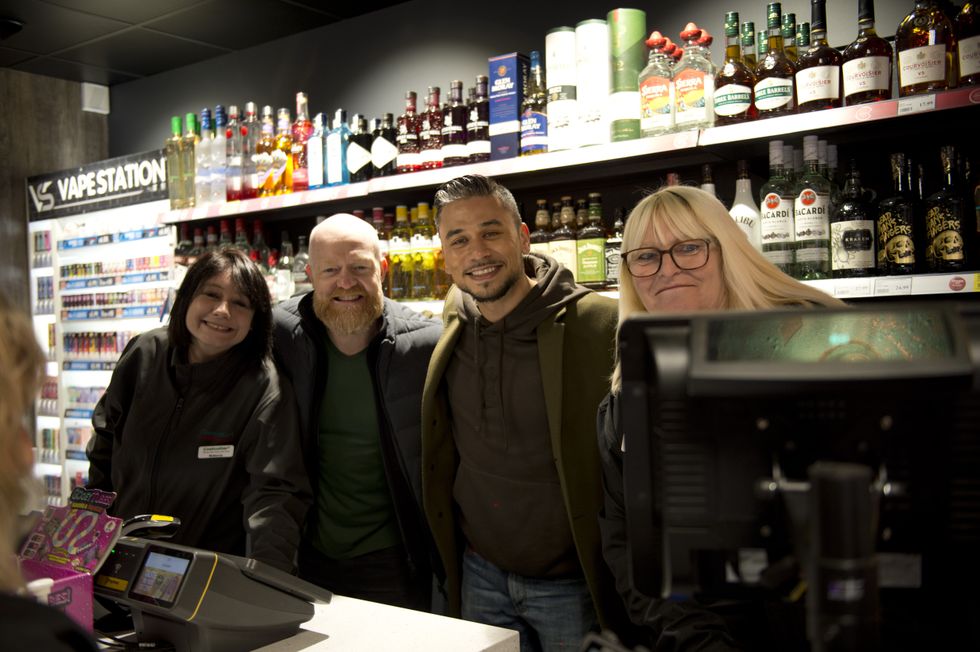
Suppliers like Heineken contribute prizes, such as Premier League tickets, while Pete also funds some rewards out of pocket. “The best prize someone has won so far is two tickets to watch Tottenham,” he says.
This initiative, which has distributed prizes worth over £10,000 in six months, has not only boosted sales but also strengthened team spirit. “Each store compliments and congratulates the other, and they get behind it, saying, ‘come on, let’s try winning this time.’ It’s a very positive and healthy competition,” he adds.
Performance Development Reviews are another cornerstone of Pete’s approach to staff management. Conducted biannually, these one-on-one sessions provide a platform for feedback, planning and idea-sharing.
“We will have a one to one with all the managers, and then we encourage the managers to have one to ones with all of their staff, which is all documented. We'd like to know from the staff what they are planning and if they've got any ideas they want to introduce,” he explains.
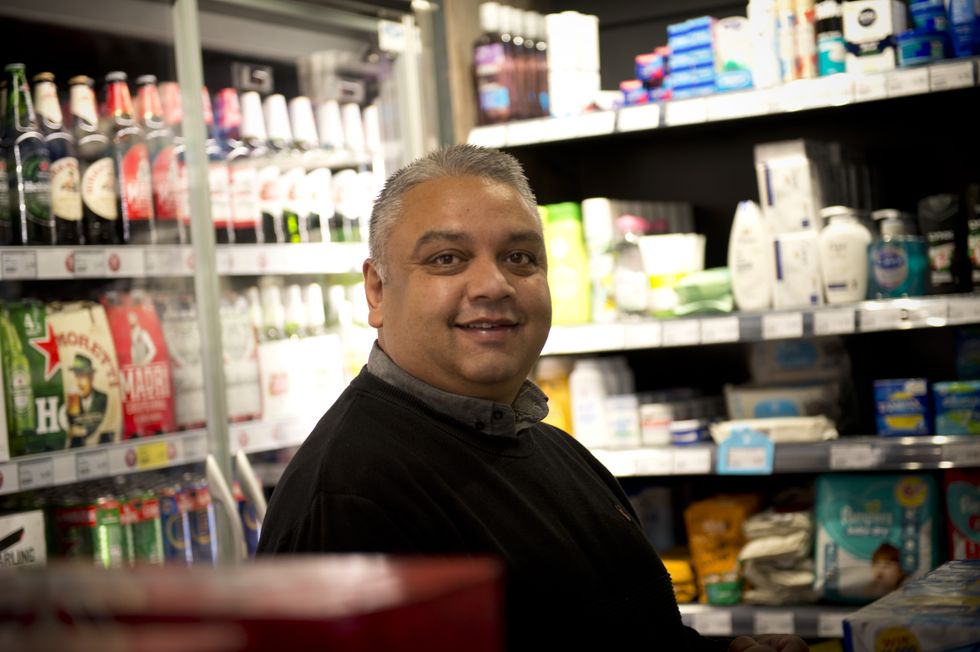
Despite the scale of his operations, Pete maintains an active presence in his stores. He visits three to four stores a week, often unannounced, to observe, support, and engage directly with his teams. These visits aren’t about micromanagement but rather an opportunity to stay connected with the day-to-day realities of the business.
“I’ll help them out if there’s anything they’re not happy about, talk to the managers, and share new ideas or concepts. It’s all about being present and involved,” he says.
The £100,000 bill
Pete’s ability to stay ahead in a competitive market is evident in his approach to trends and innovations. Food-to-go remains a cornerstone of his business, but he is determined to push its boundaries further. A key focus for the coming year is transforming under-utilised deli counters, which often close after lunchtime, into evening revenue generators.
He is exploring concepts like in-store pizza operations, which can repurpose existing ingredients, such as sandwich fillings, for evening meals. “There’s no point having a corner of the shop which shuts at three o’clock when we’re open until 10pm,” he says.
Pete sees the partnership with Bestway as a strategic advantage, offering greater flexibility and access to an extensive supply chain. “Initially it was a learning curve for everyone,” he says of the wholesaler’s acquisition of the symbol group. “But I think the merger was definitely good. It gives us multiple opportunities.”
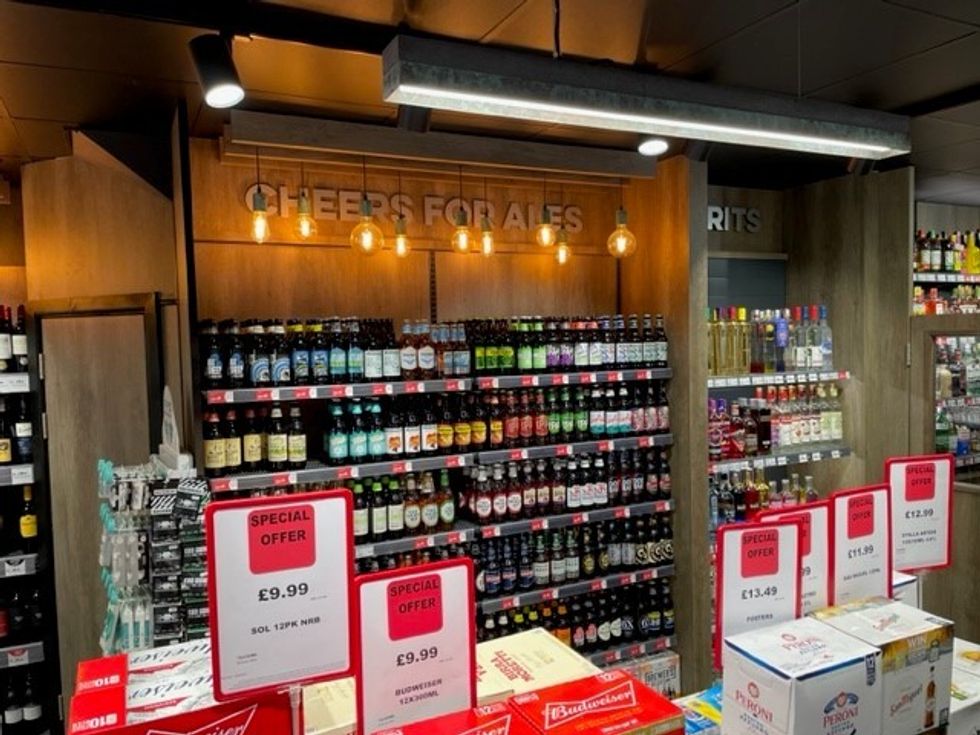
Currently, Pete’s stores source products from Nisa and Bargain Booze, but the integration of Bestway’s supply chain allows him to explore competitive pricing on various items. “If the pricing on certain products is better with Bestway, then why not buy it from them. Because it's all about getting that margin up to recoup some of these increases in costs that are coming now.”
Pete reveals that the increase in employers’ National Insurance Contributions, announced in the recent budget, is going to add £100,000 to his business costs, compelling him to adopt a cautious expansion strategy.
“Now we have got to be careful how we expand and maybe we have got to reconsider it. If we have got stores that haven't got the turnover, we may have to look to move them on. We have no choice. Come April next year, we're going to have to increase our prices,” he says, listing the consequences of the chancellor’s effort to 'kick-start a flagging economy'.
Standing out
As large supermarkets increasingly move into the convenience store format, Pete has honed a distinctive approach to staying competitive. He focuses on differentiating his stores by offering products and services that go beyond the core range typically found in multiples.
“[Supermarkets] will always focus on the core range. We will have a good range in the core categories, but we also try to put in items they are never going to stock,” he explains. “If you take my Meopham shop, for example, with a Tesco just a few doors away. Now, if you wanted a Japanese meal, you couldn't go to that Tesco and buy all the ingredients for your Japanese meal, but you can come into my Costcutter shop and you can buy all of the ingredients for Japanese meal.”
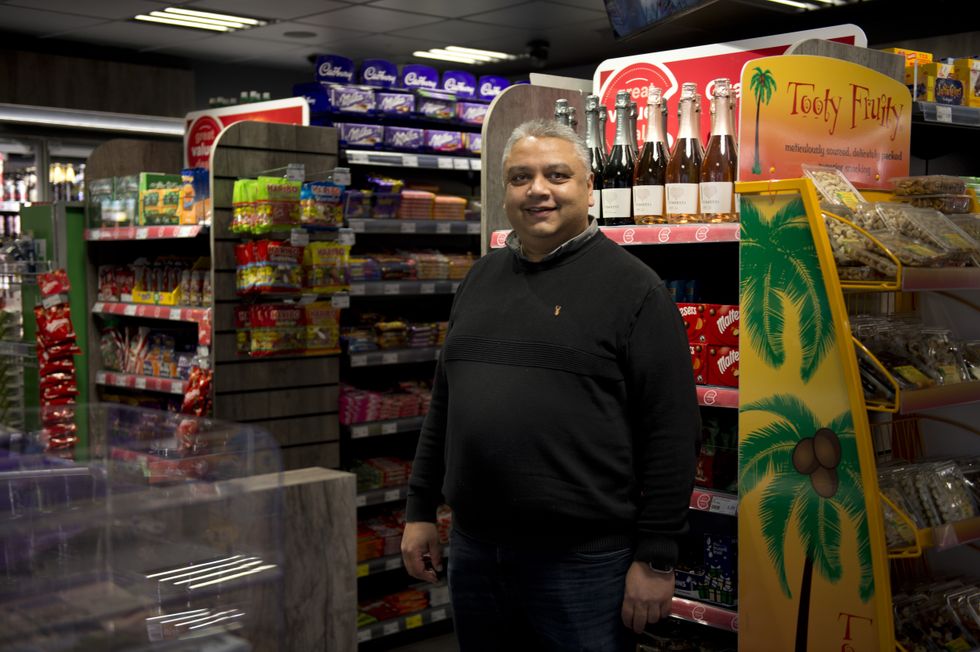
Another aspect of Pete’s success is his recognition of changing consumer habits. “People shop on the day now; they don’t plan meals like they used to,” he observes. His stores cater to this shift by stocking a diverse range of fresh and ready-to-use products that customers can pick up on their way home to create meals for the evening.
“If they decide they're going to have, like I said, a sushi tonight, they can come in our shop and they can get all the ingredients and the components for that,” he stresses the point.
Flexibility and agility are central to his competitive edge. Unlike larger retailers, his stores can respond quickly to unexpected situations or emerging trends. “For example, when one of our stores faced a water shortage due to a Water Board issue, we instantly moved water from another store to ensure supply, whereas the multiples, once they've sold out that day, they're not going to get another delivery to the next day” he notes.
Pete’s parents bought their first shop in Orpington, Kent, in 1980, when he was just five years old. Growing up surrounded by the hustle and bustle of a shop, he absorbed the values of hard work and customer service from an early age, joining the trade filling shelves by colour!
Today, he exemplifies the best of convenience retailing: a customer-first ethos, innovative strategies, and an unwavering commitment to community and sustainability.
Stick to the basics
Pete Patel’s top tips for aspiring retailers are deceptively straightforward but require dedication and consistency
- Give the best service: Providing the best customer service you can is very important to me, and it's something that we try to tell all of our staff – always offer the best customer service.
- Have the right range: Availability is important as well, especially around the core key products, We are trying to get to a stage where we are never out of stock of the top 100 lines. Every day, the managers have to check that 100 lines, and we should not be out of stock of it.
- Make sure the stores are clean and tidy: Store standards are very important, because there's so much competition in the market now and there are so many good stores. The one thing I always say to a retailer is that if you're coming into your store, would you shop in that shop? And if you wouldn't shop in your shop, then why do you expect your customers to come into your store?
“There is no magic formula. This is it,” Pete says. “Convenience is not difficult. It’s hard work, but there’s no real science behind it.”

